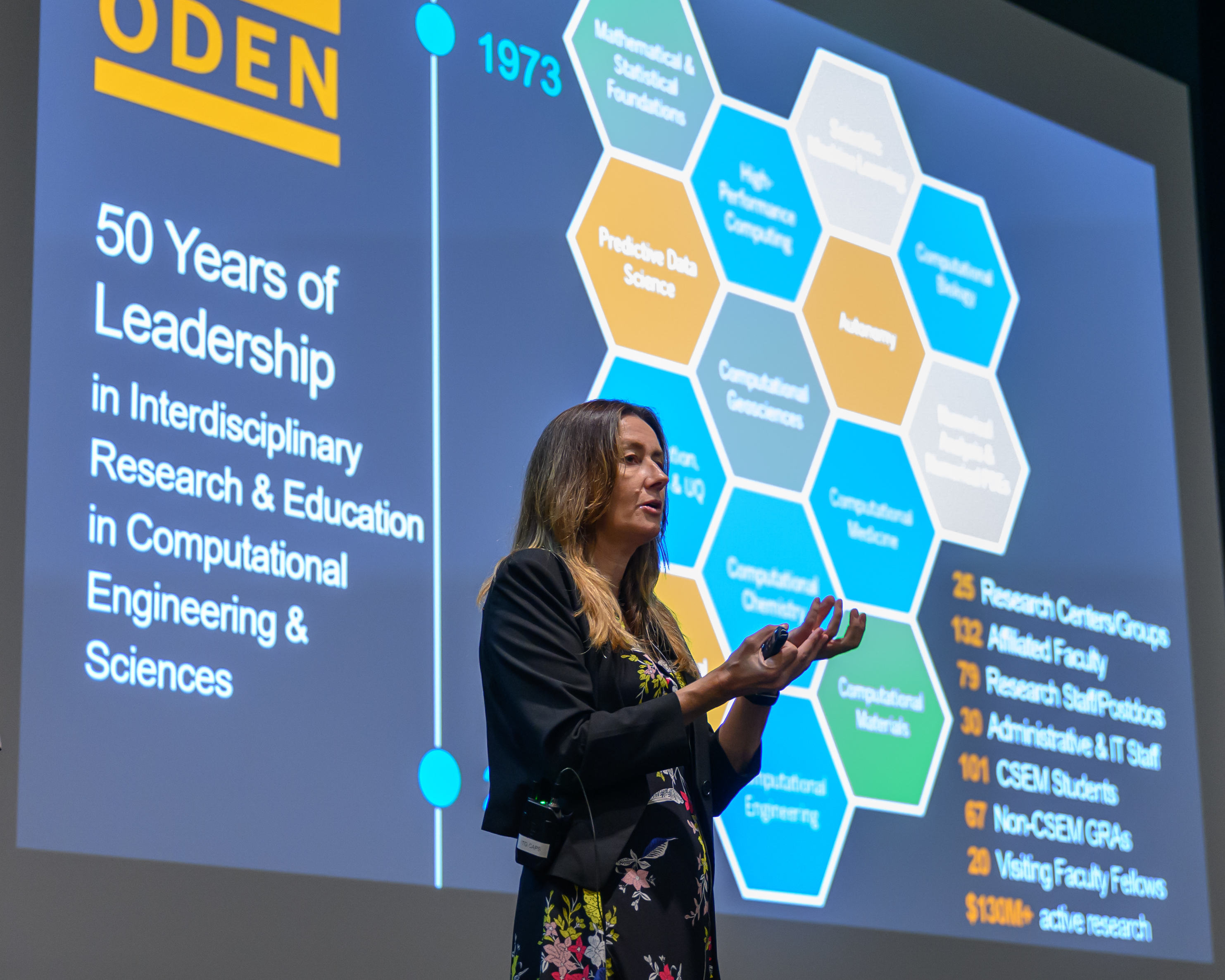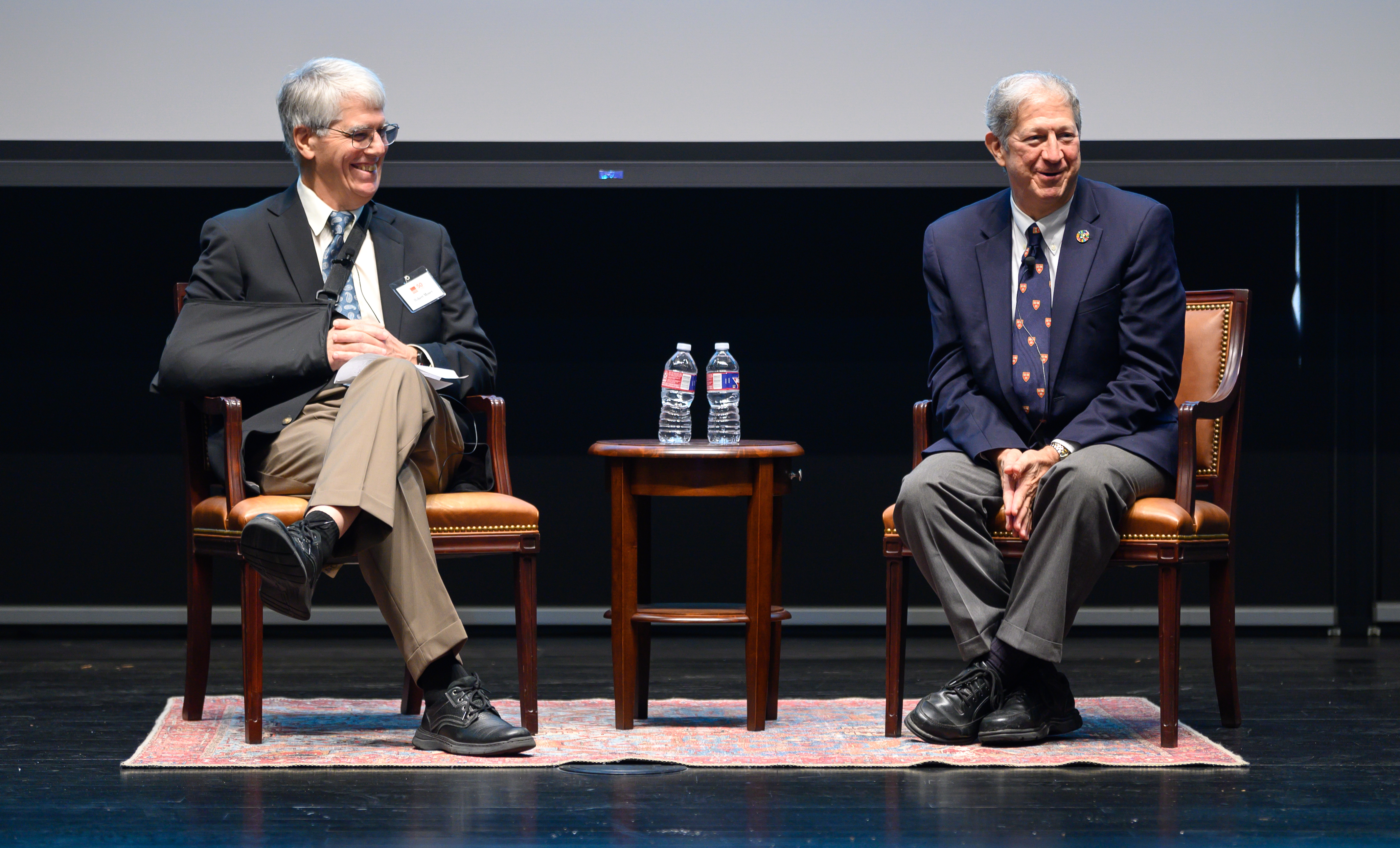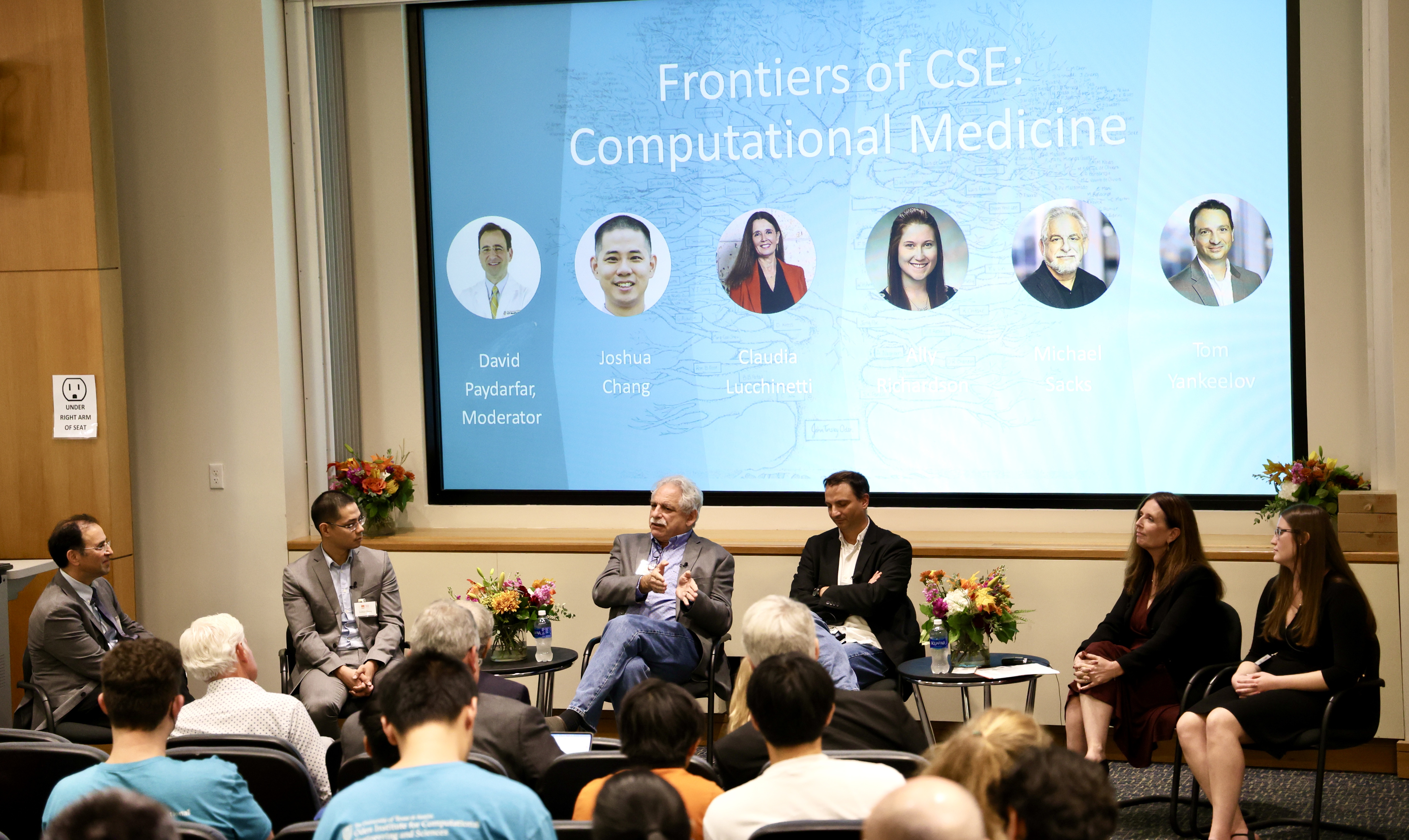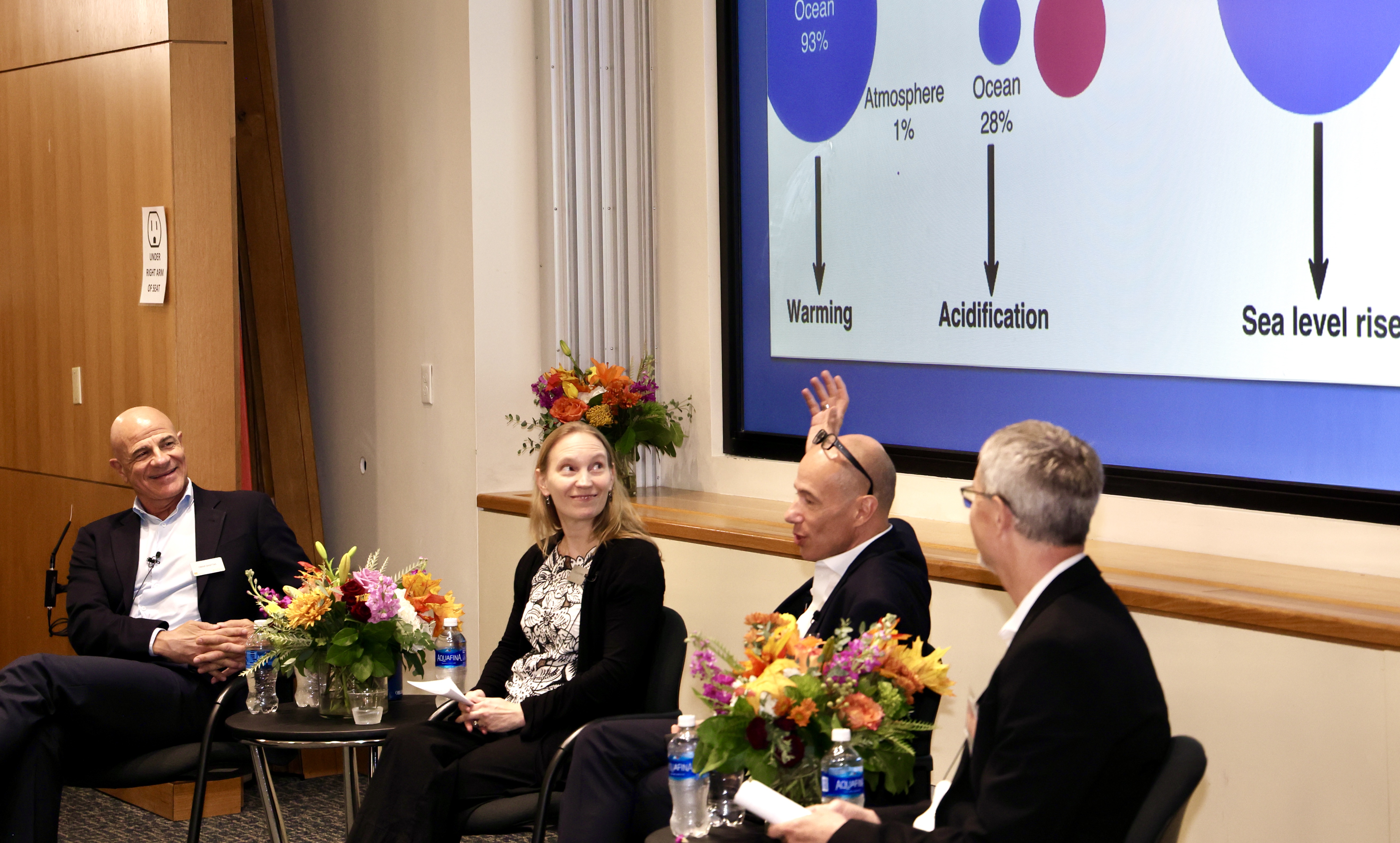The Oden Institute for Computational Engineering and Sciences at The University of Texas at Austin celebrated its 50th anniversary on September 21, hosting a full day of events, which featured two keynote addresses and afternoon panels looking at the future of computational science and engineering (CSE).
Opening remarks from university provost Sharon Wood kicked off the morning from Mulva Conference Center and Auditorium at the Engineering Education and Research Center. “I am honored to be here with all of you as we celebrate the anniversary of the Oden Institute, which has been a true center of excellence and impact on our campus for 50 years. Or as President Hartzell called it this week in the Faculty Council meeting — one of the “crown jewels” of UT!”
Director of the Oden Institute Karen Willcox gave a condensed history of the Institute. “Our founder, J. Tinsley Oden, had remarkable vision, and while most people would have been satisfied at any one of the remarkable stages of the Institute’s growth, Tinsley pushed for more, every step fraught with barriers, to build this unique interdisciplinary place. He would always say it’s about the people, and building an environment that attracts the very best in their respective fields.”
“Because we have this incredible building, built and given to us by Peter O’Donnell, students, researchers, and faculty can walk down the corridor, and bump into a mathematician or an engineer, have lunch with one another and discuss their research. These are the conversations where new ideas are born. These are the seeds that Tinsley planted half a century ago,” Willcox said. Oden, who died less than a month before the celebration, was lauded throughout the day for his vision, perseverance and foresight in building an interdisciplinary institute.
Attendees received bluebonnet seed packets with their event materials, which gave nod to the annual spring Institute retreat Oden held at his family ranch in the hill country during wildflower season. Willcox invited guests to metaphorically plant a little bit of Oden wherever they go.




